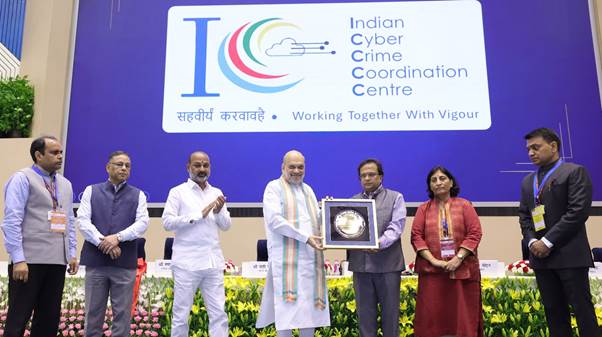As India witnesses a surge in online scams, financial frauds, and ransomware attacks, the Government of India is preparing a comprehensive national framework to counter cybercrime through joint coordination with state agencies. The new plan — a first-of-its-kind unified strategy — aims to modernize India’s digital policing infrastructure and build a seamless cyber defence network across the country.
Senior officials at the Ministry of Home Affairs (MHA) confirmed that the framework will bridge existing capability gaps between central and state units by strengthening joint investigation systems, forensic infrastructure, and technical training for law enforcement officers.
“Some states lack adequate cyber infrastructure and skilled personnel. The Centre is working to fill these gaps through targeted funding, specialized training, and deployment of technical experts,”
said a senior MHA official.
Rs132.93-Crore Push for State Modernization
Under the Cyber Crime Prevention Scheme, the Centre has released ₹132.93 crore to strengthen the cybercrime capabilities of states and Union Territories.
The funding will support:
◆Setting up cyber forensic-cum-training laboratories,
◆Appointing junior cyber consultants, and
◆Conducting training for police officers, prosecutors, and judicial personnel.
Officials said these efforts will help establish a National Response Mechanism — designed for rapid coordination in major cases like data breaches, ransomware attacks, and digital financial frauds.
AI, Analytics, and Real-Time Coordination
The upcoming framework emphasizes the integration of Artificial Intelligence (AI), Machine Learning (ML), and data analytics into investigative processes. These technologies will help detect emerging threats faster and enhance real-time coordination among cyber units investigating cross-border and interstate crimes.
The plan also includes the creation of a unified cyber monitoring dashboard and rapid-response digital task forces, capable of acting within hours of identifying a breach.

Building India’s Cyber Workforce
The MHA, in partnership with state police academies, has introduced a new national training curriculum covering key areas such as child exploitation, social media misuse, financial frauds, and privacy breaches.
The curriculum focuses on hands-on digital forensics, cyber law application, and blockchain analysis, ensuring that police and investigators are equipped to dismantle global cyber networks operating via encrypted platforms and cryptocurrency channels.
Expert View: ‘Collaboration is the Core of Cyber Resilience’
Cybersecurity expert and former IPS officer Professor Triveni Singh welcomed the move, calling it a “historic and necessary shift” in India’s cyber defence policy.
“Cybercrime has no borders. Legal measures alone are not enough. We need shared training systems, real-time data exchange, and integrated technology platforms to stay ahead of global threat actors,”
Prof. Singh said.
He also warned that AI-driven scams, deepfakes, and crypto frauds represent the next major challenge, urging stronger cooperation between Centre, States, and private cybersecurity partners.
The Road Ahead
As India transitions deeper into the digital economy, the Centre’s renewed focus on cyber governance could redefine the nation’s security posture. The MHA’s integrated cybercrime control program, expected to roll out in phases later this year, aims to make India’s digital policing faster, smarter, and globally competitive.
If executed efficiently, this joint Centre–State model could mark the beginning of a new era of unified cyber resilience — one where technology, coordination, and trust converge to secure India’s digital future.


